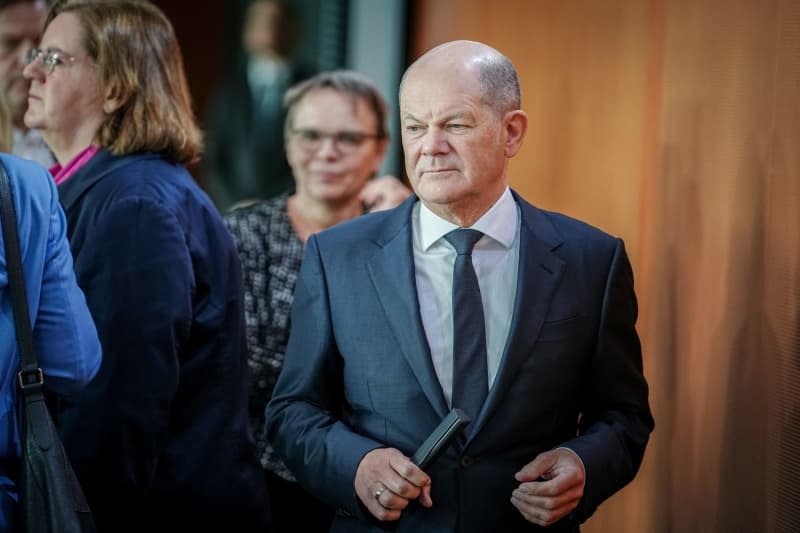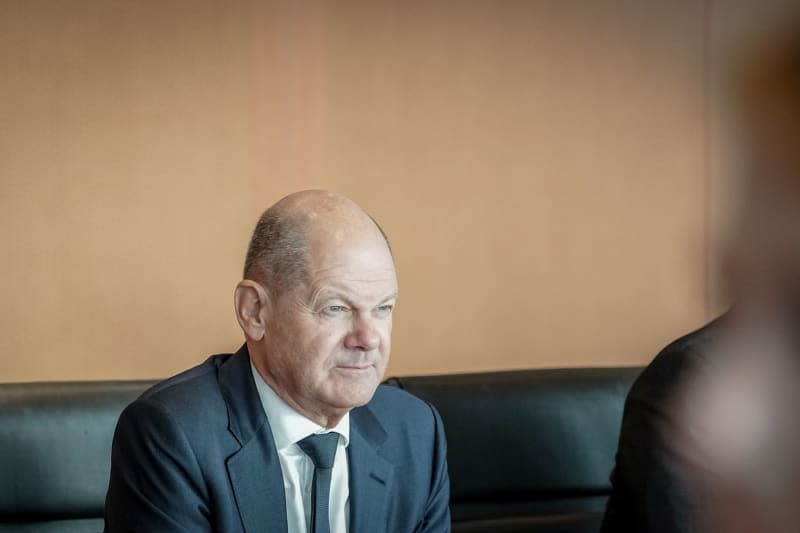Germany's Scholz says other EU countries must do more for Ukraine

- Oops!Something went wrong.Please try again later.
German Chancellor Olaf Scholz has called on European countries to do more to support Ukraine in its fight against Russia's ongoing invasion.
"The contributions that the European states have so far earmarked for 2024 are not yet large enough," Scholz said in an interview with Die Zeit newspaper. "Europe must discuss what each country can contribute so that we can significantly increase our support."
Ukraine must be able to defend its territory, Scholz said, "and this must not fail due to a lack of air defence, artillery, tanks or ammunition.
"It is my firm conviction that Europe must do more to support Ukraine in the defence of its own country," he told the newspaper.
Scholz also complained that Germany has faced frequent criticism from other European Union countries over its support for Ukraine despite providing extensive aid for the country.
"I am rather irritated that I have to constantly face criticism in Germany that the government is doing too little and is too hesitant. Yet we are doing more than all other EU states, much more," Scholz said. "That's why I'm currently on the phone a lot with my counterparts and asking them to do more."
Ukrainian Foreign Minister Dmytro Kuleba, meanwhile, reiterated that he continues to press Scholz's government about acquiring German-made Taurus cruise missiles.
Scholz has so far rejected the delivery of the advanced missiles to Ukraine, apparently out of concern that firing on Russian territory with the German missiles would lead to a further escalation of the conflict.
Kuleba once again sought to address those concerns in an interview with the news outlets Bild, Welt.tv and Politico.
Dmytro Kuleba reiterated that Ukraine is seeking the advanced missiles from Germany in order to strike Russian military infrastructure on occupied Ukrainian territory, not to hit targets in Russia.
"We don't need a Taurus to attack Moscow," Kuleba emphasized in the interview.
In the German parliament last week, lawmakers from Scholz's three-party coalition blocked a motion from the conservative opposition CDU/CSU bloc to deliver Taurus missiles to Ukraine.
However, many coalition lawmakers, especially from the Greens and the market-oriented Free Democrats (FDP), have expressed personal support for shipping Taurus missiles to Ukraine despite voting against the motion.
At a European Union summit next week, national leaders plan to discuss further arms aid for Ukraine, partly at the request of Scholz.
Ukraine has been fending off Russia's full-scale military invasion for almost two years, and is heavily dependent on Western military aid.
Wednesday marks the 700th day since the full-scale war began, although lower-level fighting broke out in eastern Ukraine in 2014, followed by Russia's annexation of Ukraine's Crimean Peninsula.


